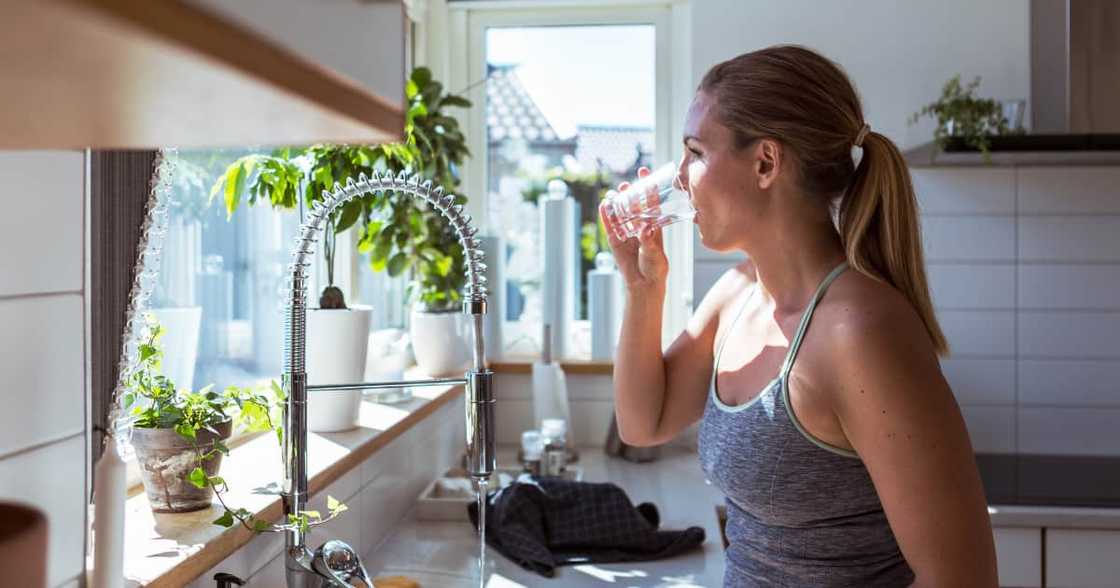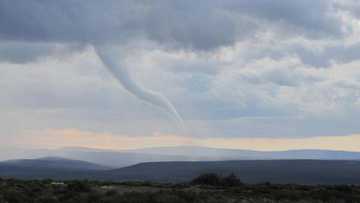No, You Can’t Get Typhoid Fever From Drinking Municipal Tap Water in South Africa
- There have been false claims circulating on social media that typhoid fever cases in Mzansi are linked to tap water
- The National Institute for Communicable Diseases has since debunked the claims and stated that there is no evidence to back up the information
- Social media users have nevertheless raised a few questions about the origins of typhoid fever and are demanding answers
PAY ATTENTION: Click “See First” under the “Following” tab to see Briefly News on your News Feed!
JOHANNESBURG - A number of social media posts have made the claim that the recent rise in typhoid fever cases in South Africa has been linked to contaminated municipal water.
Cases of typhoid fever have been detected in a few provinces so far, namely, the Western Cape, North West and Gauteng in small clusters.
The rumours about contaminated tap water have since caused confusion on social media with a lot of people now urging each other to not drink tap water because of the typhoid fever outbreak.

Source: Getty Images
Here are a few posts currently circulating:
Enjoy reading our stories? Download the BRIEFLY NEWS app on Google Play now and stay up-to-date with major South African news!
The NCID debunks rumours about typhoid fever
On Monday, 21 February, the National Institute for Communicable Diseases issued a statement saying that there is currently no evidence that indicates that the recent cases of typhoid fever are linked to contaminated water, reports Health24.
The NCID has noted that numerous social media posts made false claims about the origin of the typhoid fever outbreak by linking it to municipal tap water.
"There is no evidence that recent cases of enteric fever are linked to contaminated municipal water in any part of the country, and there is no evidence that the bacteria causing enteric fever [typhoid fever] have recently been identified in municipal water sources anywhere in the country," read the statement.
Here's the full statement:
How to protect yourself from typhoid fever
Basic hygiene practices can help people stay safe from being infected by the bacteria that causes typhoid fever. The NCID has suggested that people should wash their hands with soap and water before, during and after preparing food.
People should also wash their hands before and after eating, caring for someone who is sick and after using the toilet. People are also advised to wash their hands after changing nappies and cleaning a child who had just used the toilet.
The NICD has also suggested that people should follow food safety practices that have been stipulated by the World Health Organization. The WHO says raw and cooked food should be kept separately. Food should be properly cooked and kept at the right temperature.
The NICD says if people are concerned about how safe their water is, they should boil it first before consumption.
South Africans share their thoughts on the recent typhoid fever cases
@theonlysandile said:
"Not typhoid fever again! Just when we thought we just got rid of Covid, now we might be dealing with a case of heavy typhoid outbreak yet again."
@just_Mel_ said:
"Just when you think things were going back to some sort of normalcy, along comes typhoid fever swinging its knobkerrie."
@_Chez1505_ said:
"Also is municipal water not safe water? So we have to boil water before using it in our food but you say it's safe to drink?"
@Totibs1 said:
"What are they not telling us? Where is patient Zero and how is it spreading in this time of rigorous sanitising?"
@Rudy73796080 said:
"So where is it coming from you guys are the best at finding the covid new variants at lightning speed but can't find the source of a bacteria that is around for so many years that there is a treatment for it. But covid you guys can find and make a vaccine so quick so stop lying."
@Murendi said:
"With #typhoidfever we should also separate truth from misinformation. And I’m sure we’re all concerned for our and family’s health and safety."
No, kids are not 50 times more likely to die from the Covid19 vaccine
In other news, Briefly News previously reported that the misconceptions and misinformation around Covid19 vaccines have not stopped spreading and with children now in line to get the jab, more false statements about the vaccine and the impact they have on kids continues to spread.
A recent Instagram post made the allegation that Covid19 vaccines are more harmful to children than the actual virus, claiming that the words quoted in the post were said by Dr Michael Yeadon, a former Pfizer VP.
The post read:
"Children are 50 times more likely to be killed by Covid vaccines than the virus itself."
A few red flags come up in the post, the first being that the former Pfizer VP that was quoted in the post has not worked for the pharmaceutical company since 2011, according to Politifact.
Source: Briefly News



